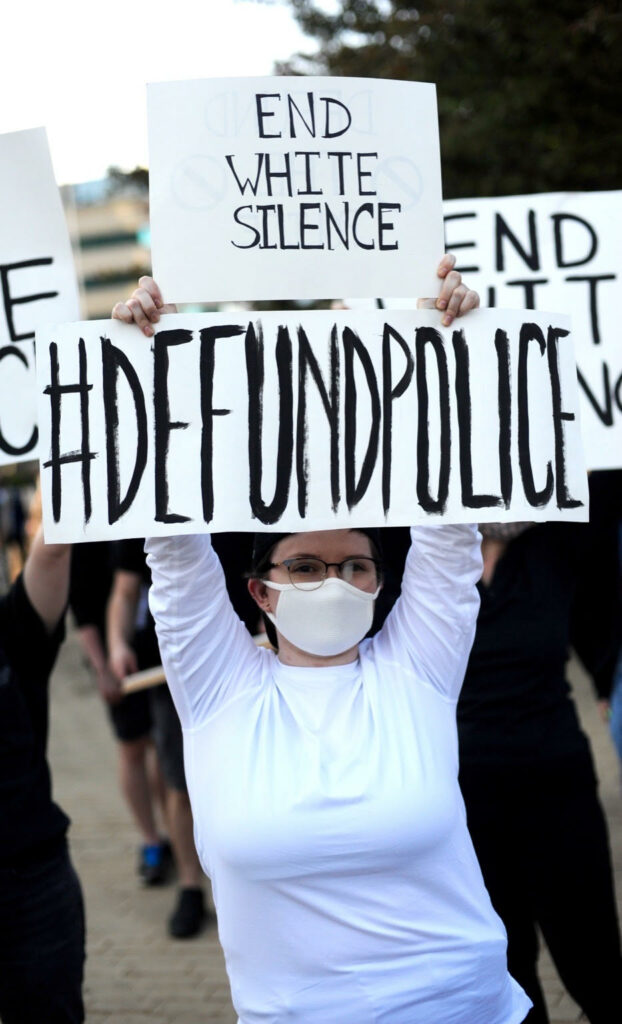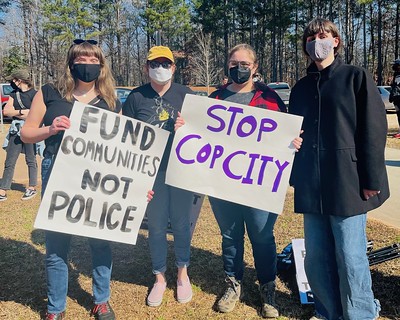Class is something white people in our movements rarely talk about. Yet is essential that we talk about and normalize it if we’re going to build a successful anti-racist movement.
How does class impact our organizing? What do middle-class and owning class folks have to learn from working-class leaders? How has the left historically ignored class and what’s the impact on our movement?
As we look at class, we want to look at it fully. This means looking at class identity, which is knowing what class we are part of (or if we don’t know, thinking about why we don’t know and what would help us to know). This means looking at class consciousness, which is understanding who is with us and who we are with related to class background and culture. This means bringing a class analysis, which means understanding how oppression is maintained and how we might dismantle it. Too often conversations about class, like conversations about race, get stuck in focusing on identity only or consciousness only or analysis only, and all these pieces matter and are necessary.
DEFINITIONS & MARKERS OF CLASS
(ADAPTED FROM CLASS ACTION)
Class is a social system that divides people based on jobs, wealth, resources, education, influence, and power.
Poor/Welfare Class people often experience the following:
- Housing instability, homelessness, substandard housing
- Require (and do not always receive) public assistance
- Basic needs are unmet
- Exploitation, underpaid/unpaid labor, high risk employment
Working Class people often experience the following:
- Often wage laborers
- Little or no access to formal education beyond high school (though student loans are shifting this dynamic so that more working class people are accessing higher education, often with great risk and sacrifice)
- Debt
- Rental housing or limited access to ownership
- Few options with regard to field of employment (typically service, manual, caretaking)
Middle Class people often experience the following:
- 4 year college degree or more
- Securely housed in owned home(s), ability to upgrade housing, renters by choice and not necessity
- Able to control work, select job fields
- Economically secure, but must remain employed
Owning Class people often experience the following:
- Can expect large inheritance
- Access to education as desired, including private or elite schools
- Working is optional
- Able to access luxuries
Class is a very complicated matter, and class groups are not clearly divided. For example, some people are born into one class and then change their class status due to (in)access to healthcare, education, employment, cross-class family relationships, and other challenges and opportunities. Also, due to the successes of poor working class organizing on issues like living wages, housing access, and education, some class markers have and will continue to shift.
Class is not just the amount of money someone has in their pocket or the resources they can access. It is a culture. The spaces that we grow, learn, play, work, and struggle in teach us norms, or how to do things on a daily basis. These norms include things like language, how to build relationships, and who has power or influence.
It is important to note that the spectrum of poor and working class identity is very broad, and that often as people have more secure working class employment, they are pushed to resemble the middle class more and more due to the shame working class people are made to feel. When we talk about class culture, we are talking about general things that are often seen in communities. These are not absolutes.
The social construct of race in the United States was created and enforced by Owning Class people in the 1600s to prevent poor white European people from joining African and Native American people in revolts. Since then, economics have played a long and painful history in the ways that racism has been enforced against People of Color, and how poor and working class white people have been scapegoated for racism.
When many people think of what racism and white supremacy in the United States looks like, they fall back on negative stereotypes of poor and working class white people. In reality, it is the hyper-wealthy, the corporate elite, and the politically powerful who benefit from maintaining the status quo.



